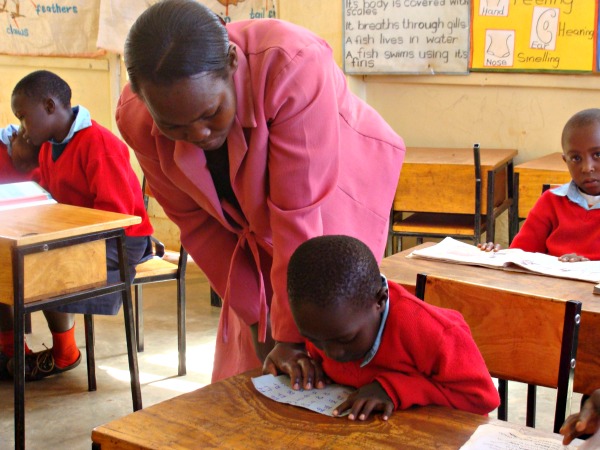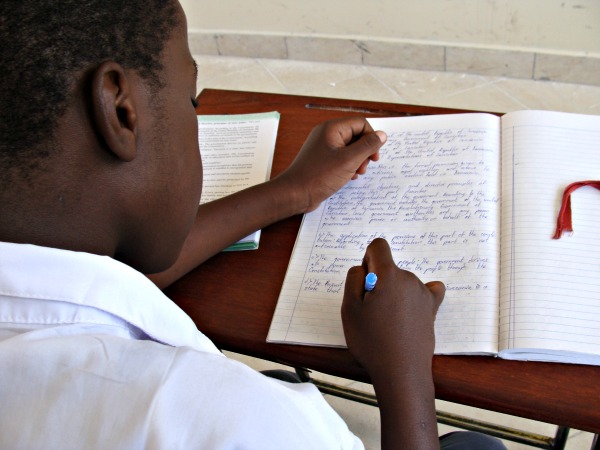
Fr Corbinian Kyara SJ
The ongoing campaign in Kenya, and other parts of Africa, of educating both children and adults on forms and effects of child abuse and the need to establish concrete measures to protect children, has resulted in an increased number of people who understand, support and appreciate the importance of having in place policies and procedures to protect children. As will be discussed below, education empowers and creates awareness, the necessary conditions for durable social change and child safeguarding in Kenya.
Education empowers children against abuse. Through child focused learning, children are able to see their role in self-protection and protection of others. Child-centered education creates awareness among children and their parents’ about child abuse. For instance, corporal punishment in Kenyan schools was accepted as a way of disciplining students in school and home setting. However, thanks to the social activists who campaigned and assumed the role of educating parents, guardians, teachers and pupils that corporal punishment is an unacceptable practice—for it amounts to child abuse—it can cause trauma and health problems that are carried into adulthood.
Through such educational campaigning, the Kenyan government adopted legislation against corporal punishment; the Children Act 2001 enlists corporal punishment as one of violent abuse against children. Hence, such popular educational campaigning has successfully managed to change the wrongly accepted conventional method of enforcing discipline and consequently protected children from abuse.

As a tool of child protection, education empowers people and communities, in building knowledge and confidence to challenge conservatively accepted cultural practices which lead to child abuse. For instance until a few years ago, female circumcision—sometimes referred to as female genital mutilation (FGM) —was a practice accepted culturally among some Kenyan tribes e.g. Kisii, Kikuyu and Massai. It was believed that such a practice is central in preparing young girls to become reliable future wives. Nevertheless, the practice as it’s known has adverse health and psychological effects and sometimes can cause death.
Through education, people from these traditional communities are gradually abandoning it. The education imparted to the public enabled the recipients to critically look at this cultural practice and confidently decided to bring a social change. Such a social change inspired by education led to protection of children against the abusive act of FGM. Besides, through education many traditional communities have come to appreciate the fact that keeping children safe requires the concerted efforts of a vigilant and informed society, confident in enforcing appropriate judgments and taking affirmative actions.
Education helps to bring awareness of children’s rights and the importance of enforcing them. When such rights are well understood and enforced the outcome is a safe environment for children. School/college education, workshops, seminars, etc., enable people to know, appreciate and uphold children’s rights, for example, the Kenyan curriculum of primary education provides for the formation of Human Rights Clubs. During the weekly club meetings, the pupils are introduced to various children’s rights and the way to report if they are infringed upon.

Additionally, education in a school setting makes it possible for children to be involved in classroom activities that are aligned with their stages of cognitive and emotional development. Therefore, school education in Kenya has helped as a tool for protecting children by creating awareness of children’s rights and promoting environments that build assurance, friendship, security and happiness, irrespective of children’s family conditions.
In sum, education in Kenya has brought home the fact that protecting children is everyone’s responsibility. Increasingly, people working in contact with children are becoming more aware of indicators of harm and procedures of reporting incidences of abuse. The increased awareness has motivated the government to employ child-safeguarding staff in each district to ensure timely and effective intervention for children who may be at risk of significant abuse.
Fr Corbinian Kyara SJ is from Tanzania working in the Eastern Africa Province and is currently serving as the Provincial’s Director of Development and is based in Nairobi, Kenya. He sends his appreciation to the Irish Jesuit Missions (IJM) in a letter of gratitude:
Dear all
Author: Fr Corbinian Kyara SJ, November 14th 2016, updated 27th February 2017

